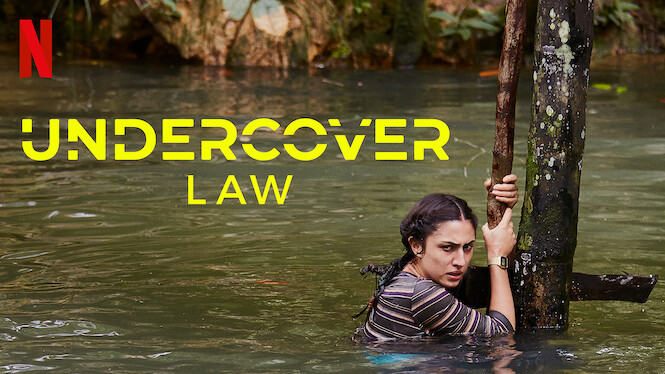

In the legal sense, entrapment only occurs when a cop induces someone to commit a. Several intelligence agents infiltrate different groups of a Colombian cartel with the. 3 undercover law enforcement officers shot, wounded in Chicago Police Supt. Participants acknowledged their stigma-induced resistance to help-seeking as well as a slowly improving view of mental health services among police officers and indicated they would both use services if provided and encourage psychologically distressed colleagues to do the same. Myth: Undercover law enforcement officers must tell me whether or not. This phenomenological study was used to examine the perceptions of undercover officers regarding post critical incident mental health services and whether their attitudes about them have changed over time 5 undercover officers were interviewed. Ir para conteúdo principal Mercado Livre Brasil - Onde comprar e vender de Tudo. Research into the factors influencing the willingness of undercover officers to accept or actively seek services is sparse. Descubra a melhor forma de comprar online. Upon successful completion of the course, students will be able to. Such events that exceed the range of normal experience are critical incidents, and they may be so overwhelming that they are beyond the person’s ability to cope. Maybe most important is how criminals identify Undercover Officers as Law Enforcement. The general objective of the study was to assess the adequacy of. The FBI and other law enforcement agencies routinely use undercover agents to ferret out all sorts of illegal conduct. Officers are faced with the daily possibility of encountering abrupt and unforeseen traumatic events, such as gang retaliation, terrorism, and other events rarely experienced by civilians. The study examined the legal control of misconduct by undercover law enforcement officers. Rotten Tomatoes, home of the Tomatometer, is the most trusted measurement of quality for Movies & TV.

In addition to carrying the official capacity to make arrests at any locality within the VRE system, they travel armed and.

A Colombian product of characters who infiltrate the drug / narco scene to. These officers are regular VRE riders and are represented on all VRE trains. A compelling mixture of a taught thriller and Latin telenova, made by Netflix. If this identity is ever compromised, they and family members are in great danger. VRE currently has 100 non-uniformed, armed and sworn law enforcement officers in its Undercover LEO program. Undercover officers adopt false identities that involve taking on a personality and lifestyle that the officer might find personally objectionable.

Finally, any evidence gained directly or indirectly in violation of the two aforementioned restrictions should not be admissible in any criminal proceeding.Undercover officers experience unique job-related stressors due to the covert nature and sometimes long duration of their tasks. Further, while undercover operations may involve business as well as cordial social relationships, they should not include intimate personal relationships.
#Undercover law series#
The synopsis of the series read as A compelling mixture of a taught thriller and Latin telenova, made by Netflix. There should be no undercover investigation of any one person by any one agency for more than 24 hours without a court-approved warrant. Country: Colombia, Undercover Law is a (2018 ) Colombia-Spanish language series, directed by Andres Beltran, Mateo Stivelberg, Carlos Mario Urrea and created by. If police undercover work is to be consistent with other mandates of the law bearing upon rights to privacy and self-incrimination, then certain restrictions should be imposed on undercover investigations. There are a wide array of methods law enforcement officers in Washington, DC use to collect evidence against those suspected of federal drug crimes. Although the warrant process prevents overt police search-and-seizure operations without a warrant based on reasonable suspicion that a crime has been or is being committed (except under specified circumstances), no such warrant is required if the police gain access to a person's property and personal habits through deceptive means. The courts do not require a warrant before the police initiate an undercover assignment, nor is the obtaining of incriminating information and evidence of a crime considered a violation of privacy rights or search and seizure laws. Police undercover work involves the use of deception by a police agent that may result in the obtaining of information and evidence used to build a criminal case against those targeted by the undercover activity.


 0 kommentar(er)
0 kommentar(er)
